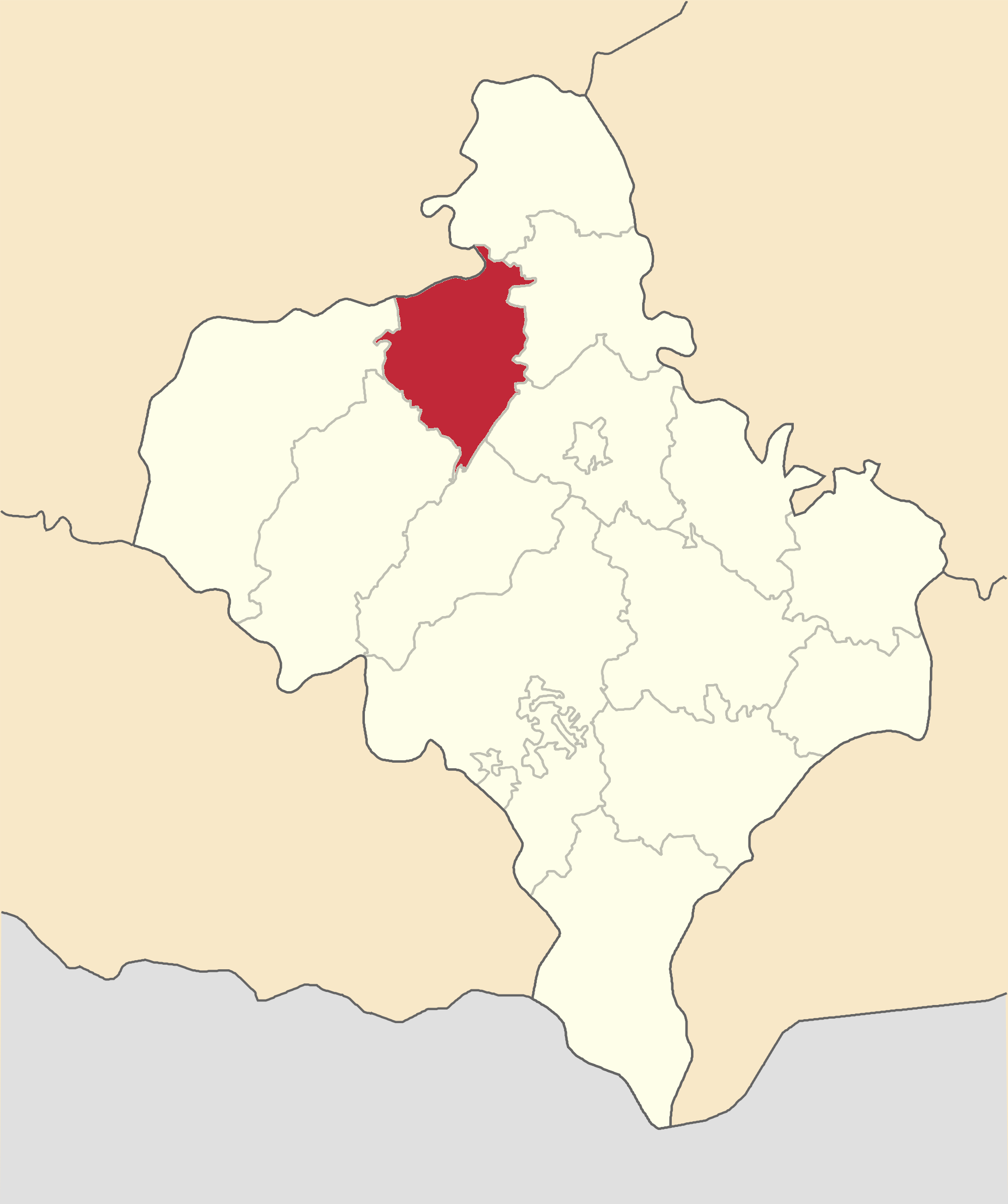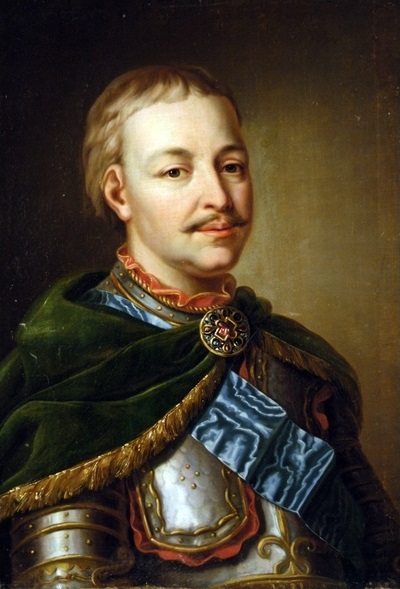|
Vytvytsia
Vytvytsia (; ) is a village in Ivano-Frankivsk Oblast, Ukraine, in Kalush Raion. It is the administrative centre of Vytvytsia rural hromada. Its population is 1,255 (). History Vytvytsia was first mentioned in 1397, in a document by Władysław II Jagiełło. In 1939 the village had 1,690 residents (1,640 Ukrainians, 20 Polish people, 20 Jews, and 10 Latynnyky), according to Volodymyr Kubijovyč. There are two churches in the town; the wooden churches in Ukraine, wooden Church of Saint Ivan the Theologian (Ukrainian Greek Catholic Church) and the brick Church of Apostle Andrew the First-Called (Orthodox Church of Ukraine). Notable residents * , Ukrainian Greek Catholic Church, Ukrainian Greek Catholic priest and Organisation of Ukrainian Nationalists politician * , Ukrainian diplomat and politician, People's Deputy of Ukraine * Zenovii Krasivskyi, Ukrainian poet and Soviet dissidents, Soviet dissident, co-founder of the Ukrainian Helsinki Group * , Organisation of Ukrainia ... [...More Info...] [...Related Items...] OR: [Wikipedia] [Google] [Baidu] |
Vytvytsia Rural Hromada
Vytvytsia rural hromada () is a hromada in Ukraine, in Kalush Raion of Ivano-Frankivsk Oblast. The administrative center is the village of Vytvytsia. Settlements The hromada consists of 9 villages: References {{Ivano-Frankivsk Oblast 2016 establishments in Ukraine Hromadas of Ivano-Frankivsk Oblast ... [...More Info...] [...Related Items...] OR: [Wikipedia] [Google] [Baidu] |
Zenovii Krasivskyi
Zenovii Mykhailovych Krasivskyi (; 12 November 1929 – 20 September 1991), also spelled Zenovij Krasivskyj, was a Ukrainian poet, Soviet dissident, and human rights activist. He was a member of the Ukrainian Helsinki Group, and in the last year of his life the leader of the Banderite wing of the Organisation of Ukrainian Nationalists within Ukraine. Early life and first arrest Zenovii Mykhailovych Krasivskyi was born on 12 November 1929, in the village of Witwica, in the Stanisławów Voivodeship of the Second Polish Republic (now Vytvytsia in Ukraine's Ivano-Frankivsk Oblast). His family supported the Organisation of Ukrainian Nationalists, and his older brothers were members of the Ukrainian Insurgent Army. This influenced his worldview and attitudes towards Ukrainian nationalism. Krasivskyi's family was deported to the Kazakh Soviet Socialist Republic by the Soviet government in 1947 or 1948. Rather than following them, Zenovii fled to the Carpathian Mountains, where ... [...More Info...] [...Related Items...] OR: [Wikipedia] [Google] [Baidu] |
Kalush Raion
Kalush Raion () is a raion (district) of Ivano-Frankivsk Oblast (province). The city of Kalush is the administrative center of the raion. Population: On 18 July 2020, as part of the administrative reform of Ukraine, the number of raions of Ivano-Frankivsk Oblast was reduced to six, and the area of Kalush Raion was significantly expanded. Two abolished raions, Dolyna and Rozhniativ Raions, as well as Bolekhiv Municipality and the city of Kalush, which was previously incorporated as a city of oblast significance and did not belong to the raion, were merged into Kalush Raion. The January 2020 estimate of the raion population was The raion was formed on October 28, 1963. In 1972 part of the raion became incorporated into the Kalush municipality. The oldest settlements in the Raion are Stankiv (1158), Zaviy (13th century), Holyn' (1391), and Novytsia (14th century). The leader of the Organization of Ukrainian Nationalists, Stepan Bandera, was born in Staryi Uhryniv in Kalush Ra ... [...More Info...] [...Related Items...] OR: [Wikipedia] [Google] [Baidu] |
Village
A village is a human settlement or community, larger than a hamlet but smaller than a town with a population typically ranging from a few hundred to a few thousand. Although villages are often located in rural areas, the term urban village is also applied to certain urban neighborhoods. Villages are normally permanent, with fixed dwellings; however, transient villages can occur. Further, the dwellings of a village are fairly close to one another, not scattered broadly over the landscape, as a dispersed settlement. In the past, villages were a usual form of community for societies that practice subsistence agriculture and also for some non-agricultural societies. In Great Britain, a hamlet earned the right to be called a village when it built a church.-4; we might wonder whether there's a point at which it's appropriate to talk of the beginnings of French, that is, when it wa ... ''village'', from Latin ''villāticus'', ultimately from Latin ''villa'' (English ''vi ... [...More Info...] [...Related Items...] OR: [Wikipedia] [Google] [Baidu] |
Volodymyr Kubijovyč
Volodymyr Kubijovyč (also spelled Kubiiovych or Kubiyovych; ; 23 September 1900 – 2 November 1985) was an anthropological geographer in prewar Poland, a wartime Ukrainian nationalist politician, a Nazi collaborator and a post-war émigré intellectual of mixed Ukrainian- Polish background. During the war Kubijovyč headed the social welfare and the economic committee called UCC (). He was an anti-Semite and a proponent of ethnic cleansing. In 1943, he was a founder of the 14th Waffen Grenadier Division of the SS. Kubijovyč was a supporter of the OUN-M, Andriy Melnyk's faction in the Organization of Ukrainian Nationalists. Ryszard Torzecki, ''Kwestia ukraińska w polityce III Rzeszy 1933-1945 (The Ukrainian question in the politics of the Third Reich 1933-1945)'' Warsaw 1972, page 236. After the collapse of Nazi Germany, Kubijovyč settled in France. He later became the chief editor of the Encyclopedia of Ukraine and the secretary general of the Shevchenko Scientific Soc ... [...More Info...] [...Related Items...] OR: [Wikipedia] [Google] [Baidu] |
Ukrainian Helsinki Group
The Ukrainian Helsinki Group () was founded on November 9, 1976, as the Ukrainian Public Group to Promote the Implementation of the Helsinki Accords on Human Rights () to monitor human rights in Ukraine. The group was active until 1981 when all members were jailed. The group's goal was to monitor the Soviet Government's compliance with the Helsinki Accords, which ensure human rights. The members of the group based the group's legal viability on the provision in the Helsinki Final Act, Principle VII, which established the rights of individuals to know and act upon their rights and duties. Details Since 1977, the Ukrainian Helsinki Group foreign affiliate began its activities with the participation of Petro Hryhorenko, Nadiya Svitlychna, Leonid Plyushch. Later, Nina Strokata Karavanska and Nadiya Svitlichna began to host the human rights themed radio programs on Svoboda radio. From the very early days, the group endured the repressions of Soviet authorities. In February 1977 ... [...More Info...] [...Related Items...] OR: [Wikipedia] [Google] [Baidu] |
Soviet Dissidents
Soviet dissidents were people who disagreed with certain features of Soviet ideology or with its entirety and who were willing to speak out against them. The term ''dissident'' was used in the Soviet Union (USSR) in the period from the mid-1960s until the Fall of Communism.Chronicle of Current Events (samizdat) It was used to refer to small groups of intellectuals whose challenges, from modest to radical to the Soviet regime, met protection and encouragement from correspondents, and typically criminal prosecution or other forms of silencing by the authorities. Following the etymology of the term, a dissident is considered to "sit apart" from the regime. As dissenters began self-identifying a ... [...More Info...] [...Related Items...] OR: [Wikipedia] [Google] [Baidu] |
People's Deputy Of Ukraine
A people's deputy of Ukraine (, ) is a member of parliament and legislator elected by Direct election, popular vote to the Verkhovna Rada, the parliament of Ukraine. They are often referred to simply as "deputies". Prior to 1991, the Verkhovna Rada had been called the Supreme Council of People's Deputies of the Ukrainian Soviet Socialist Republic. Statutes concerning elections and the rights and duties of deputies are outlined in Articles 76 - 81 of the Constitution of Ukraine. Ukraine's parliament has 450 seats. Deputies may be appointed to various parliamentary positions such as Chairman of the Verkhovna Rada, chairperson (speaker) of the Verkhovna Rada, a head of a committee or a parliamentary faction, etc. Upon taking office, each deputy receives a deputy mandate. People's deputies elected to the Verkhovna Rada as independent candidates may choose to join factions. Since 2016, anti-corruption in Ukraine, corruption regulations mandate senior public officials (including depu ... [...More Info...] [...Related Items...] OR: [Wikipedia] [Google] [Baidu] |
Organisation Of Ukrainian Nationalists
The Organisation of Ukrainian Nationalists (OUN; ) was a Ukrainian nationalist organization established on February 2, 1929 in Vienna, uniting the Ukrainian Military Organization with smaller, mainly youth, radical nationalist right-wing groups. The OUN was the largest and one of the most important far-right Ukrainian organizations operating in the interwar period on the territory of the Second Polish Republic. The OUN was mostly active preceding, during, and immediately after the Second World War. Its ideology was influenced by the writings of Dmytro Dontsov, from 1929 by Italian fascism, and from 1930 by German Nazism. The OUN pursued a strategy of violence, terrorism, and assassinations with the goal of creating an ethnically homogeneous and totalitarian Ukrainian state. During the Second World War, in 1940, the OUN split into two parts. The older, more moderate members supported Andriy Melnyk's OUN-M, while the younger and more radical members supported Stepan Bandera's OU ... [...More Info...] [...Related Items...] OR: [Wikipedia] [Google] [Baidu] |
Orthodox Church Of Ukraine
The Orthodox Church of Ukraine (; OCU), also called the Ukrainian Orthodox Church, is an Eastern Orthodox Church in Ukraine. It was granted autocephaly by the Ecumenical Patriarch of Constantinople on . Some of the Eastern Orthodox Churches recognize the Orthodox Church of Ukraine as the only canonical successor of the Metropolis of Kyiv, while the Catholic Church recognizes the Ukrainian Greek Catholic Church as the only canonical successor. The church was established under the ecclesiastical jurisdiction of the Ecumenical Patriarchate of Constantinople by a unification council that convened in Kyiv on 15 December 2018, following which Ecumenical Patriarch Bartholomew I granted it a tomos of autocephaly. The unification council united the Ukrainian Orthodox Church – Kyiv Patriarchate and the Ukrainian Autocephalous Orthodox Church into the OCU. Two bishops formerly of the Ukrainian Orthodox Church (Moscow Patriarchate) (UOC-MP) also joined. The unification council e ... [...More Info...] [...Related Items...] OR: [Wikipedia] [Google] [Baidu] |
Ukrainian Greek Catholic Church
The Ukrainian Greek Catholic Church (UGCC) is a Major archiepiscopal church, major archiepiscopal ''sui iuris'' ("autonomous") Eastern Catholic Churches, Eastern Catholic church that is based in Ukraine. As a particular church of the Catholic Church, it is in full communion with the Holy See. It is the second-largest particular church in the Catholic Church, after the Latin Church. The major archbishop presides over the entire Church but is not distinguished with the patriarchal title. The incumbent Major Archbishop is Sviatoslav Shevchuk. The church regards itself as a successor to the Metropolis of Kiev and all Rus', metropolis that was established in 988 following the Christianization of Kievan Rus' by Grand Prince Vladimir the Great. Following the establishment of the Metropolis of Kiev, Galicia and all Rus' (1441–1596), metropolis of Kiev, Galicia and all Rus', by the terms of the Union of Brest, the Ruthenian church was transferred from the ecclesiastical jurisdictio ... [...More Info...] [...Related Items...] OR: [Wikipedia] [Google] [Baidu] |
Wooden Churches In Ukraine
Wooden church architecture in Ukraine dates from the beginning of Christianity in the area and comprises a set of unique styles and forms specific to many sub-regions of the country. As a form of vernacular culture, construction of the churches in specific styles is passed on to subsequent generations. The architectural styles vary from very simple to complicated, involving a highly skilled carpentry and exceptional artistry in wood-cutting. Aside from ''tserkvas'' (Greek Catholic or Eastern Orthodox churches), there are quite a few ''kosciols'' (Roman Catholic Church, Latin Catholic churches) that are preserved in West Ukraine, Western Ukraine. Some of these churches remain in active use. General overview Nearly 1,900 wooden churches have been identified in Ukraine . When Ukrainians emigrated to the New World in the late 19th century, many used these stylistic forms but adapted their construction to the new materials and new environmental conditions (see for example the Holy Trin ... [...More Info...] [...Related Items...] OR: [Wikipedia] [Google] [Baidu] |




